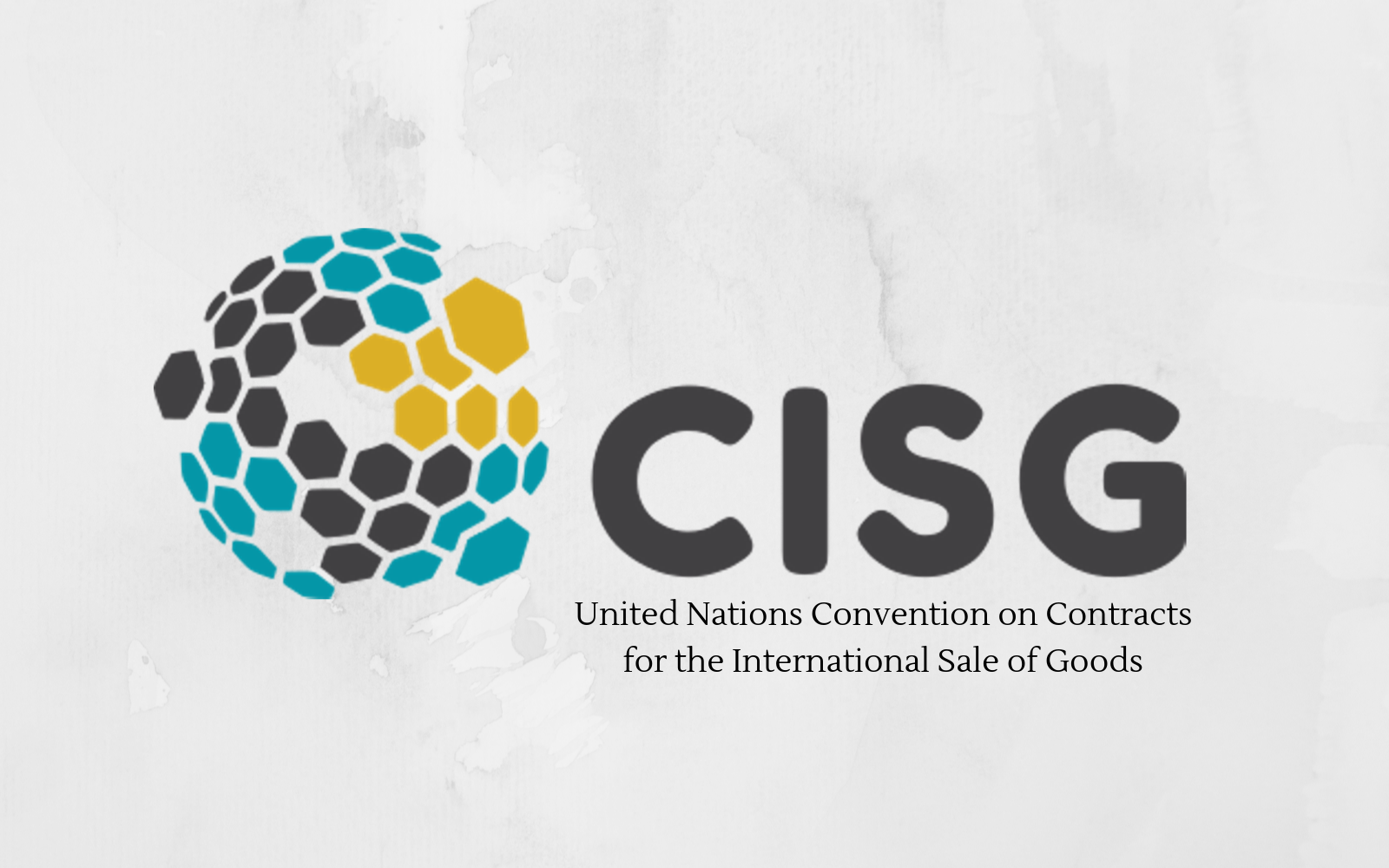United Nations Convention on Contracts for the International Sale of Goods: A Tool for Development in Trade and Sales for Kazakhstan and Its Comparison with the Civil Law

United Nations Convention on Contracts for the International Sale of Goods shortly known as (CISG) developed by the United Nations Commission on International Trade Law (UNCITRAL) and signed in Vienna in 1980 which came into force after the ratification of 11 countries in 1988 (UNCITRAL.org, 2019). Currently, 93 countries are members of CISG including large economies like the United States, Japan, China and Russia. The CISG plays an important role in international sales law on strengthening the clarity for businesses in their international business relations with other companies in case of business contract issues. For this purpose, the CISG is written using a neutral language to avoid the misinterpretation of the laws and uses the common legal language (UNCITRAL.org, 2019).
In the era of globalization any firm wants to enter the international market to reach out more customers in order to increase their earnings. However, when making deals in a foreign country in case of conflict the applicability of laws issue appears. On this point disagreements between sides occur due to preferences of choosing the law or regulation where each side wants to select their domestic laws to be applied. Therefore UNCITRAL has created the CISG to bring guidance to international sales. Kazakhstan as an developing economy where its firms conduct their business in the international market as well as of 17 June 2020 Kazakhstan is not a party to the CISG. In this article we would try to lay out the differences between CISG and provisions of Kazakhstani legislation. Thus, at the end of this paper, the reader will be able to observe to what extent Kazakhstan complies with the CISG and main challenges for incorporation of new provisions into domestic legislation. Moreover, in particular this paper would focus on corresponding provisions of the Civil Code (General Part of 27 December 1994 No. 268 and Special Part of 1 July 1999 No. 409) (further – the Civil Code of Kazakhstan). The Civil Code regulates relations occurring between persons and/or legal entities under civil law.
The main purpose of the CISG is to bring a uniform law to ease the concerns of the companies regarding issues that might arise from the fact that seller and buyer firms use different local laws and regulations in international sales. It could be said that CISG is one of the major initiatives that serve the purpose of unifying the vast commercial law at the international level. The acceptance of the CISG by the countries has mainly benefited the small businesses to open for the international markets more confidently in terms of legal consideration, because for small businesses dealing with contract disputes with a firm in a different country could be quite difficult for them to deal with. Therefore, when countries become the member states the CISG law applies in their disputes if the CISG is chosen or in case of all sides are located in a member country to the convention CISG would be the applicable law which eliminates the processes of negotiations regarding the differences in national laws, procedures and other legal complications (UNCITRAL.org, 2019).
Because the contract sale is one of the most important aspects of doing business internationally and international trade laws that govern the regulations in this area are vitally important. Therefore, the necessity of a general application of the uniform format of laws was almost absolute. In line with this goal CISG, a successor of UNCITRAL is one of the most successful initiatives that tries to achieve this goal. Under this philosophy and potential benefits, it provides the convention had become attractive to many countries to be part of due to mainly economic reasons. Adding to that relying on CISG allowed small companies to protect their rights against the possibly larger ones due to acceptance of the CISG is the applicable law (Flechtner, 2019).
It could be argued that from an economic perspective the establishment of the CISG has fastened the globalization process of trade and financial activities by assisting in increasing the international activeness of firms on a different scale. However, there are certain limitations of applicability of the CISG like the contract of sales needs to be done between businesses that are operating in different states. CISG could apply to international sales of goods among private firms apart from sales to consumers and sales of services, alongside with certain specific types of goods. Moreover, the term goods are also limited to tangible and mobile goods. In addition to that CISG is not interested in covering the validity of the contract and domestic sales also cannot be affected by the CISG (Lorenz-partners.com, 2015).
In order to illustrate the potential advantages of CISG for the Civil Code of Kazakhstan, a number of similar articles have been compared. However, the purpose of this comparison is not for illustrating advantages of both texts or point out the disadvantages in them but rather to learn from different experiences to increase the efficient and profound usage of the Civil Code of Kazakhstan. Thus the following comparisons would represent the CISG version of the solution to the different situations that have been collected below.
In third-party claims, article 413 of the Civil Code of Kazakhstan regulates third-party claims. The seller is obliged to transfer the goods to the buyer free of any rights of third parties, except for the case when the buyer has agreed to accept the goods encumbered by the rights of third parties. Meanwhile, failure to fulfill this obligation gives the buyer the right to demand the availability of the price or the termination of the contract and damages, unless it is proved that the buyer should have been aware of the rights of third parties to this product. Meanwhile, Article 41 of the CISG says that the seller must deliver goods which are free from any right or claim of a third party unless the buyer agrees to take the goods subject to that right or claim.
Regarding the passing of risk, Kazakhstani legislation and the CISG have different approaches. In particular, Article 411 of the Civil Code of Kazakhstan says that unless otherwise provided by the contract of sale, the risk of accidental loss of or accidental damage to the goods passes to the buyer from the moment when the seller is considered to have fulfilled his obligation to transfer the goods to the buyer.
Meanwhile, in accordance with Article 67 of the CISG the risk transfers to the buyer when the goods are given to the first carrier for transmission to the buyer in accordance with the contract of sale. In other words, the CISG more specifically stipulates that risks pass to the buyer when the goods reach the carrier. In Kazakhstani legislation, the risks do not transfer from the seller to the buyer automatically from the moment of passing to the carriage, if it is not written in the contract. To the contrary, there is a notion of “fulfillment of the obligation to transfer”, which can be interpreted ambiguously.
Furthermore, the Civil Code of Kazakhstan and the CISG share a common basis with slightly different details regarding the transferring of risk for the goods, which are sold during transit. In this case, pursuant to Article 411 of the Civil Code of Kazakhstan, the risks pass from the time a sales contract is entered into force, while under the CISG when the contract is concluded.
As in the case of anticipatory breach and installment contracts, there is an interesting point of comparison is the application of anticipatory breach and installment contracts. To be precise, the CISG (Articles 71-73) has a notion of anticipatory breach, which implies the situation when it is obvious that one of the parties cannot fulfill its obligations under the contract. The Civil Code of Kazakhstan does not have an analogous mechanism to the anticipatory breach. Taking the CISG experience on this issue would be a positive asset for the Kazakhstani legislation.
The damages issue is an important part in the sales contract and within the provisions in the Civil Code of Kazakhstan and the CISG the main commonality in both legal acts is that depending who violated the contract, the buyer or the seller is obliged to compensate the loss from non-performance of the contract.
In conclusion, it could be said that this paper is a modest step to compare contract forming for commercial purposes. However, it could be said that during the comparison we uncover the basic similarities and differences on the issue. Firstly, Kazakhstani legislation needs to be more clear on exchanging the offer and acceptance in written or oral ways. Secondly, the procedure for passing of risk from the seller to the buyer should be identified more clearly. Thirdly, it is highly recommended to create the mechanism of an anticipatory breach and installment contracts.
Moreover, we would highlight that in 2017 in Kazakhstan there were steps taken towards joining the CISG. In particular, the Ministry of National Economy developed a draft Law on ratification of the CISG and sent it to the Parliament of the Republic of Kazakhstan, but for some reason, it did not pass further. However, we believe that this issue could be raised again and the necessary steps could be taken in order to assess the benefits of CISG and eventually become a member state.
References
Adilet.zan.kz (2019). Civil Code (General Part) of the Republic of Kazakhstan of 27 December 1994 No. 268. Ministry of Justice of the Republic of Kazakhstan Republican Center of Legal Information. Retrieved from http://adilet.zan.kz/eng/docs/K940001000_ Accessed on 26.05.2019
Adilet.zan.kz (2019). Civil Code (Special Part) of the Republic of Kazakhstan of 1 July 1999 No. 409. Ministry of Justice of the Republic of Kazakhstan Republican Center of Legal Information. Retrieved from http://adilet.zan.kz/eng/docs/K990000409_ Accessed on 27.05.2019
Economy.gov.kz (2019). About Draft of Law of RK “About Ratification of Convention of UN About Agreement n International Sales and Purchase of Goods. Ministry of National Economy of the Republic of Kazakhstan. Retrieved from http://economy.gov.kz/en/pages/about-draft-law-rk-about-ratification-convention-un-about-agreement-international-sales-and?theme_version Accessed on 27.05.2019.
Flechtner M, F. (2019). United Nations Convention on Contracts for the International Sale of Goods Vienna, 11 April 1980. Audiovisual Library of International Law. Retrieved from http://legal.un.org/avl/ha/ccisg/ccisg.html Accessed on 26.05.2019.
Lorenz-partners.com (2015). Advantages of applying the United Nations Convention on Contracts for the International Sale of Goods (CISG) in General Terms and Conditions. Retrieved from https://www.lorenz-partners.com/download/Germany/NL102E-Advantages-of-General-Terms-and-Conditions-on-CISG-Basis-Jan15.pdf Accessed on 26.05.2019.
UNCITRAL.org (2019). United Nations Convention on Contracts for the International Sale of Goods (Vienna, 1980) (CISG). United Nations Commission on International Trade Law. Retrieved from http://www.uncitral.org/uncitral/en/uncitral_texts/sale_goods/1980CISG.html Accessed on 27.05.2019.
UNCITRAL.org (2019). United Nations Convention on Contracts for the International Sale of Goods (Vienna, 1980) (CISG). United Nations Commission on International Trade Law. Retrieved from https://uncitral.un.org/en/texts/salegoods/conventions/sale_of_goods/cisg Accessed on 27.05.2019.
Note: The views expressed in this blog are the author’s own and do not necessarily reflect the Institute’s editorial policy.
Zhengizkhan Zhanaltay
Deputy Director
Zhengizkhan Zhanaltay is a deputy director in the Eurasian Research Institute at H.A.Yassawi Kazakh Turkish International University. Zhengizkhan completed his bachelor’s degree at international relations department of KIMEP University in 2010. He completed his master thesis named ‘Oralmans integration into Kazakhstani Society: Turkish Kazakh Case’ in International Relations department of KIMEP University in 2014. His research interests include international migration politics, labor and ethnic migrants social and economic integration into society and remittance.

